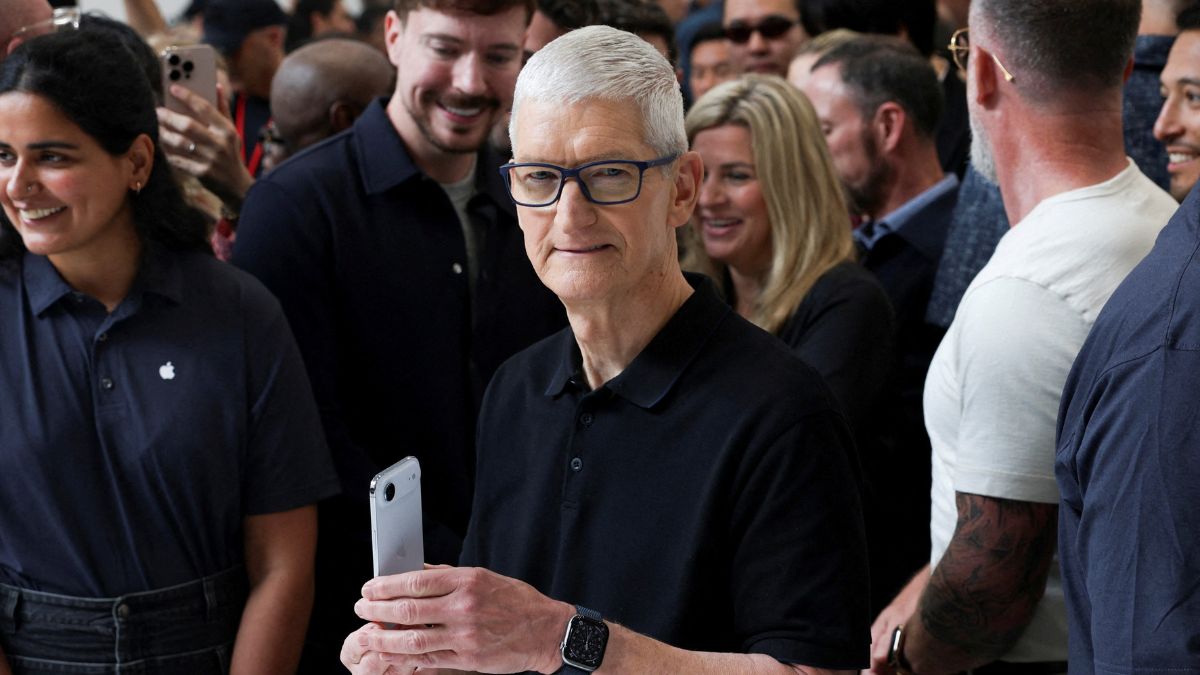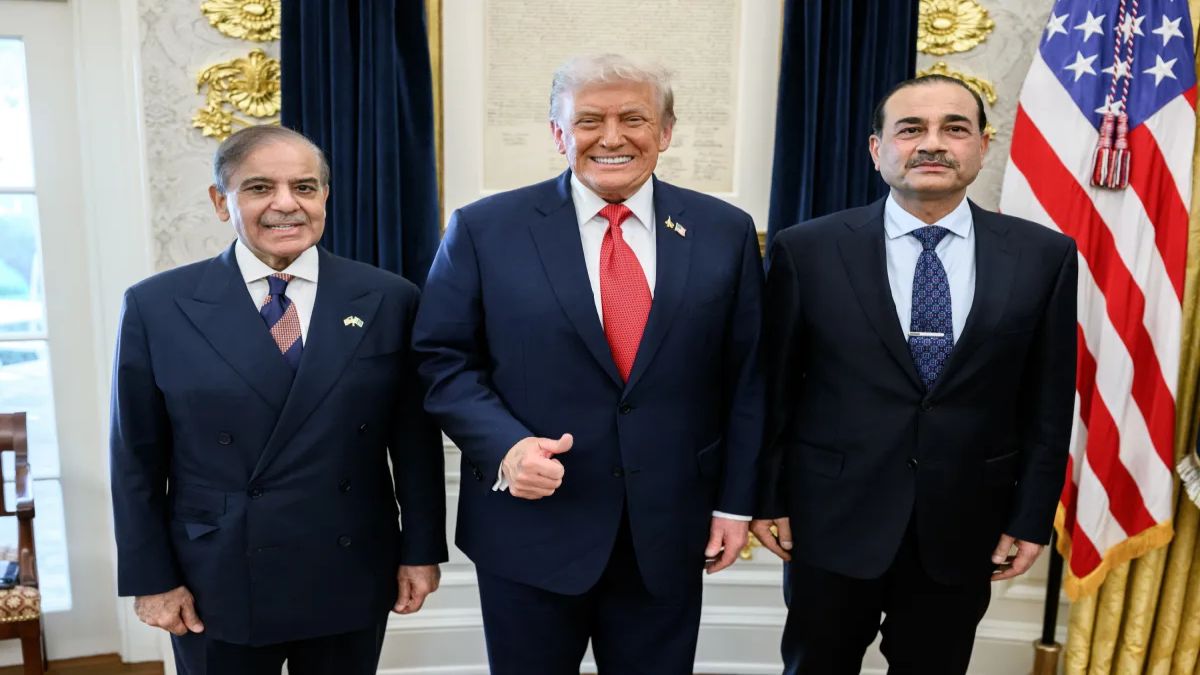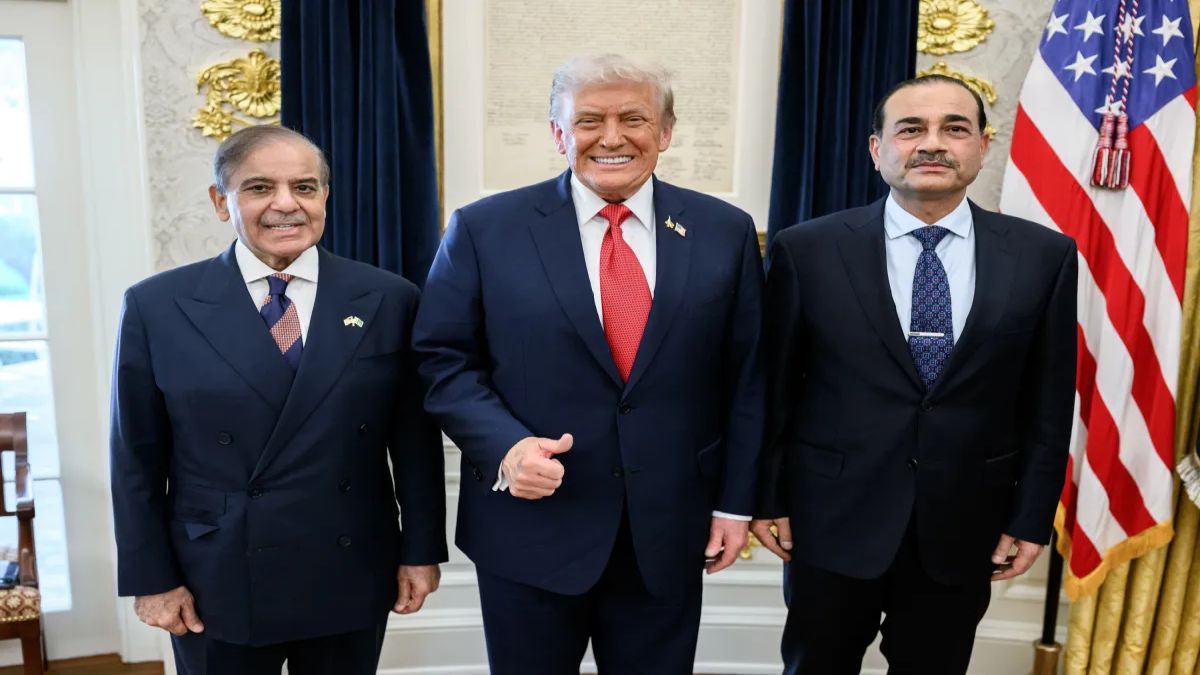As Apple enters the final quarter of the year, attention within and beyond Silicon Valley is turning towards one pressing question: who will succeed Tim Cook?
With the Apple chief executive officer (CEO) turning 65 next month, reports indicate that a significant reshuffling of Apple’s senior leadership is already underway, suggesting that the company may be preparing for its most substantial management transition in more than a decade.
For a company that has long prided itself on organisational stability, Apple now finds itself in a moment of executive turnover, reported Bloomberg.
During Tim Cook’s 14-year tenure as CEO, Apple managed to avoid the frequent high-level departures that typically accompany corporate expansion on a global scale.
Yet several senior figures who helped shape Apple’s recent history have now either stepped aside or are preparing to do so.
Chief Operating Officer Jeff Williams, once widely regarded as Cook’s natural successor, has already begun to withdraw from day-to-day operations.
Having relinquished many of his duties to long-time Apple executive Sabih Khan in July, Williams is expected to formally leave by the end of this year.
His decision marks the latest stage in what industry observers describe as a “broad changing of the guard”.
Williams’s retirement follows the earlier exits of influential figures such as design chief Jony Ive, retail head Angela Ahrendts, and former Chief Financial Officer Luca Maestri.
Even after stepping down from their primary roles, several of these executives continued to contribute in advisory capacities — Phil Schiller, for instance, remains involved in the management of the App Store and Apple’s product-launch events despite relinquishing his senior marketing post in 2020.
However, that continuity can only last so long.
The internal reshuffle now under way appears to be a deliberate preparation for the next phase of Apple’s leadership, one that will inevitably come when Cook decides to step back.
According to Bloomberg’s Mark Gurman, “With Cook turning 65 next month, Apple has reportedly begun internal discussions about who will take over the CEO role, keeping the succession plan a key topic within the company.”
John Ternus, the next Apple CEO?
Among all the names being discussed, John Ternus, Apple’s Senior Vice-President of Hardware Engineering, has increasingly emerged as the leading candidate to succeed Cook.
Sources familiar with Apple’s internal dynamics describe Ternus as both trusted by the current CEO and widely respected within the company’s engineering ranks.
Ternus has spent nearly a quarter of a century at Apple, having joined in 2001. Over that period, he has overseen many of Apple’s most successful product lines and technological developments.
His steady rise through the ranks culminated in his appointment as senior vice-president in 2021, a role that gave him oversight of hardware design across Apple’s portfolio of devices.
Gurman notes that “John Ternus, Apple’s Vice President of Hardware Engineering with 24 years at the company, is reportedly the leading candidate,” a view reinforced by both his track record and his age.
At 50, Ternus is exactly the same age Cook was when he succeeded Steve Jobs in 2011, placing him in a similar position to lead Apple for a decade or more should he take over.
Ternus’s growing influence has also been evident in Apple’s public communications. In recent product launches, he has increasingly represented the company on stage and in the media — roles once reserved almost exclusively for Cook.
He introduced the iPhone Air, Apple’s first major redesign in several years, and played a central role during the unveiling of the iPhone 17 range.
In September, he was photographed greeting customers at Apple’s Regent Street store in London on the launch day of the new iPhones, a symbolic gesture once carried out by Cook himself at Apple’s Fifth Avenue store in New York.
“Ternus is also well-regarded by Apple loyalists and has Cook’s trust,” Gurman wrote, adding that his visibility and involvement in key decision-making processes have “reinforced his credibility as a potential CEO successor.”
Beyond charisma and public recognition, Ternus brings extensive technical expertise — an attribute that could appeal to Apple’s board as it seeks to navigate new technological frontiers.
Analysts believe that his engineering background positions him well to lead the company through challenges in areas such as artificial intelligence, mixed-reality devices, and advanced chip development, fields where Apple has invested heavily but where results have sometimes lagged behind expectations.
How is Apple’s executive landscape changing?
Apple’s leadership transformation extends well beyond the question of who will become the next CEO. Several of the company’s most senior executives are themselves evaluating their futures, contributing to a broader sense of transition across multiple divisions.
Among those potentially nearing the end of their tenures is Johny Srouji, the head of Apple’s Hardware Technologies group.
Srouji has been responsible for overseeing the design of Apple’s proprietary A-series and M-series processors, as well as the company’s first in-house cellular modem, Wi-Fi, and Bluetooth chips.
His leadership has been instrumental in helping Apple achieve self-reliance in critical semiconductor technologies, a strategy that has insulated the firm from supply-chain vulnerabilities affecting many of its competitors.
Srouji is said to be “evaluating his future,” though no final decision has been made.
If he were to depart, individuals familiar with the division suggest that his likely internal successors would be Zongjian Chen, who manages Apple’s modem and connectivity teams, and Sri Santhanam, who leads the development of the main application processors powering the company’s devices.
Elsewhere, John Giannandrea, the head of Apple’s artificial intelligence unit, has faced ongoing scrutiny following difficulties surrounding the rollout of Apple Intelligence and the company’s much-publicised attempts to overhaul Siri.
While Giannandrea has so far retained his position, Bloomberg reports that Apple has been exploring potential leadership changes within its AI operations, including the possibility of recruiting senior talent from outside the company.
Among those considered is an unnamed senior executive at Meta Platforms Inc., whose restructuring of its own AI division earlier this year created opportunities for movement across the industry.
Another senior figure contemplating her next steps is Lisa Jackson, Apple’s Vice-President for Environment, Policy, and Social Initiatives.
The former head of the US Environmental Protection Agency, appointed in 2013, has significantly broadened her role at Apple to include government relations, accessibility, and social responsibility.
Known for her focus on environmental sustainability, Jackson has maintained a lower public profile during President Donald Trump’s second term, with her deputies taking on a greater share of the company’s interactions with the administration.
Any new faces within Apple?
While some of Apple’s long-time executives prepare for retirement or reassignment, the company continues to cultivate new leaders.
Each October, Apple traditionally promotes a group of directors to vice-president level — an important layer in the corporate hierarchy just below the senior leadership team.
This year, Apple announced several notable additions to its vice-presidential ranks. Fletcher Rothkopf, who has been a key figure in the development of the Vision Pro headset, will now oversee much of the hardware engineering for Apple’s forthcoming smart glasses.
Omar Alwarid, an operations specialist focusing on procurement, and Ivan Krstic, who heads Apple’s security engineering division, were also elevated.
Together, these appointments highlight Apple’s emphasis on hardware innovation, supply-chain efficiency, and product security — core areas that underpin the company’s next generation of devices.
These structural changes come as Apple prepares to report its financial results for the final quarter of the year.
The upcoming earnings announcement, expected at the end of this month, will provide an early indication of how the iPhone 17 range and other recently introduced products have performed in their initial weeks on the market.
However, as the quarter includes only a brief period of iPhone 17 sales, analysts expect the more comprehensive results to appear in early 2026, following the holiday season.
What comes next for Tim Cook?
Despite the growing speculation, Tim Cook remains fully engaged in Apple’s operations. The CEO recently completed an extensive tour of the United States, the United Kingdom, and Japan, meeting with partners, developers, and regional teams.
Insiders describe him as continuing to oversee strategic direction across all divisions, even as responsibilities have increasingly been delegated to other executives.
Cook’s approach to leadership has long been characterised by a steady hand, operational precision, and an emphasis on sustainability and privacy.
Under his stewardship, Apple’s valuation has soared to nearly US$4 trillion, making it one of the most profitable enterprises in corporate history. The question now is not whether Cook’s influence will fade, but rather how Apple will manage his eventual transition.
When the time comes, it is expected that Cook will remain connected to the company in a senior advisory or board capacity. According to Bloomberg’s analysis, “When Cook eventually steps down as CEO, it’s likely he would remain involved in some capacity — perhaps as board chairman.”
This arrangement would mirror similar transitions made by other technology leaders, such as Jeff Bezos at Amazon, Bill Gates at Microsoft, and Larry Ellison at Oracle, ensuring strategic continuity during a period of change.
That continuity may prove especially significant in the current political and economic environment.
Tim Cook’s eventual departure — whenever it comes — will mark the end of an era for Apple.
Yet, even as Apple remains financially strong, it faces mounting pressure to deliver breakthroughs in emerging technologies such as artificial intelligence, augmented reality, and autonomous systems.
These challenges may explain why a technologist like John Ternus is increasingly viewed as the right kind of leader for Apple’s next chapter.
Also Watch:
With inputs from agencies


)

)
)
)
)
)
)
)
)



